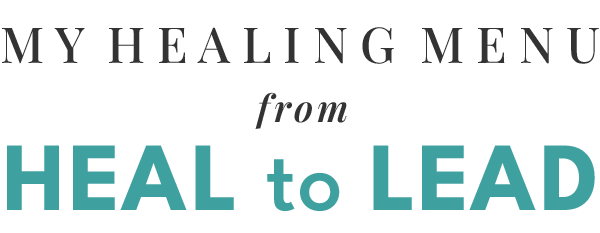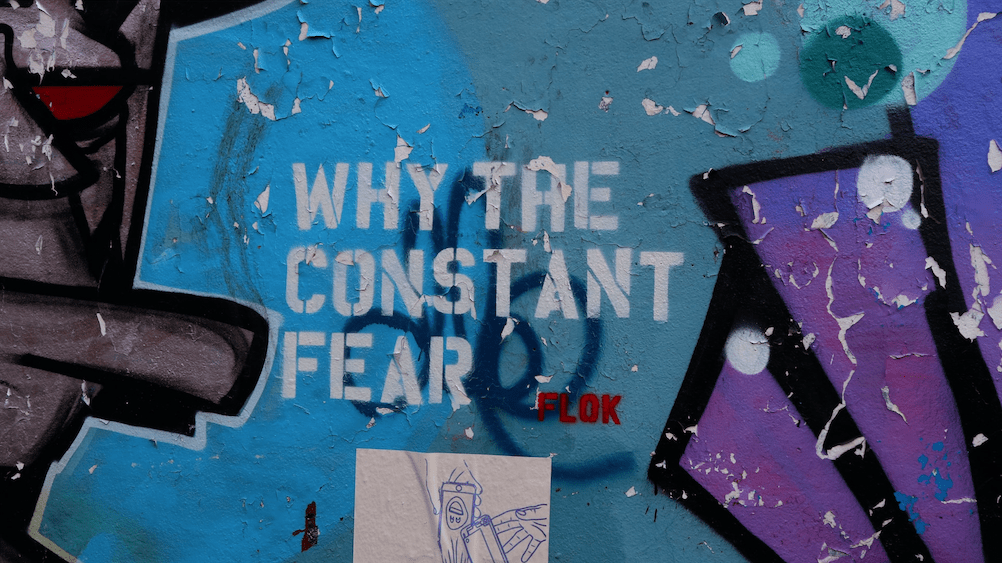Healing looks different for every one of us.
How you work on your past trauma is entirely up to you. If you’re unsure where to begin, it might be helpful to see a menu of resources, modalities, practices, and psychedelic options available. That’s precisely the intention behind this site; welcome to MyHealingMenu.com.
Choose Your Course.
An accompaniment to HEAL to LEAD by Kelly L. Campbell, this one-of-a-kind resource is by no means an exhaustive library. All menu items are categorized as Appetizers (Cerebral Resources), Sharing Plates (Therapeutic and Integrative Modalities), Entrees (Somatic Practices), and Dessert (Plant Medicine and Psychedelics*) to help you navigate the multitude of options available. Start your exploratory journey by selecting from the categories below. And remember to go slow and be gentle with yourself.

Appetizers:
Books and podcast episodes, binaural beats, online courses, apps, support groups, and information about your origin and human composition.

Sharing Plates:
Types of trauma-informed professionals, therapies, bodywork, energy work, and spiritual assistance.

Entrees:
Traditional and holistic movement practices with the breath, body, and mind, as well as options designed to regulate the nervous system.

Desserts:
Mostly natural (some synthetic) psychoactive substances taken in macro or micro doses—if not contraindicated for your health.

Meet Kelly
Kelly L. Campbell (they/she) is the author of HEAL to LEAD: Revolutionizing Leadership through Trauma Healing (Wiley), a radical new book on transforming trauma into innate leadership power. They are a certified Trauma-Informed Leadership Coach, empowering self-aware visionaries to correlate their past wounds to their leadership style—transforming the way they lead, live, and love in the world.
She writes for Entrepreneur, has written for Forbes, and on her Substack, “The New TLC: Trauma, Leadership, and Consciousness.”
An inspiring keynote speaker, Kelly is also the founder of Consciousness Leaders, the world’s most diverse and equitable speaker collective, helping organizations create lasting positive change and drive lasting results.

Metacognition
Additional articles on trauma, leadership and consciousness, which also appear at klcampbell.com. If you like what you read, consider subscribing to THE NEW TLC on Substack.
Relational Discernment and Depth of Connection
Instead of maintaining the status quo and accepting survival, how much more alive would we feel if we chose meaningful relationships over all else? <strong>This article first appeared in "THE NEW TLC: Trauma, Leadership, and Consciousness" on Substack.</strong>
Many Confident Leaders Resist Change — And These 5 Emotional Wounds Could Be to Blame
Five core emotional wounds keep low-conscious leaders from embracing the uncertainty of change, which can stunt the growth and innovation of their organizations — and negatively influence employees, culture, and the bottom line. This article first appeared in Entrepreneur.
Designing Moments of Joy for Our Inner Child
Where do you default to survival mode and prepare for the absolute grind versus creating space for magic, awe, and wonder to surprise and delight you?
2024: The Year of the Great Wake-Up?
As we stand at the edge of 2024, a year that holds the promise of a collective awakening, the importance of prioritizing mental wellness and engaging in inner work has never been clearer. Let this be the year when individuals, leaders, and communities find each other and co-create new cultural norms that value emotional well-being, paving the way for a brighter and more compassionate future for us all.
Unintegrated Trauma: How to Improve Communication by Understanding Stress Responses
Often without our conscious awareness, trauma manifests in our bodies. To become truly conscious leaders, we must bring compassion and curiosity to our own wounding as well as that of others. This article first appeared in Entrepreneur.
Releasing Trapped Trauma: Practicing Somatic Awareness for Emotional Liberation
Somatic emotional release provides tools to increase self-awareness, discharge trapped energy, and return to the state of being that feels like homeostasis. Somatic practices guide us home into the wisdom of the body, releasing trapped trauma so we can live, lead, and communicate with greater capacity for ourselves and others.
How to Cultivate a Coach Mindset and Explorative Listening
The core techniques of a coaching approach revolve around mindset, intentional presence, and a listening-centered methodology focused on forming a trusting partnership. Implementing even a few of these tools and techniques into tense conversations can set you on the path to more conscious and constructive business communication.
The Elon Musk Interview: Trauma’s Impact on Leadership
Delving into the low-conscious characteristics displayed during Elon Musk's interview with Andrew Ross Sorkin at the New York Times Dealbook Summit on November 29, 2023, this piece explores the link between his childhood trauma and his leadership style.
How to Lead with Compassion During Traumatic Times
Afraid of getting it wrong, most leaders remain silent about collectively traumatizing events. While that's no longer an option, it can be hard to know where to begin, so here are five actionable considerations for organizational leaders. <b>This article first appeared in <em>Entrepreneur</em>.</b>
Burnout Is Not Preventable — Here’s How to Address Its Underlying Cause Instead
Burnout cannot be prevented with sabbaticals or self-care regimens. Instead, it requires healing past emotional wounds to increase self-worth and self-value, the ability to set healthy boundaries, and a clear commitment to how we want to live and lead. <b>This article first appeared in <em>Entrepreneur</em>.</b>
Why Trauma Integration Will Give You a Competitive Advantage in Leadership
For those who do deep, personal work to heal and integrate their past trauma, there is a distinct competitive advantage that they have as business leaders—and even more benefits to the people and organization they lead. <b>This article first appeared in <em>Entrepreneur</em>.</b>
Are You a Fear-Based Leader? Unveiling the Link Between Fear-Based Management and Childhood Trauma
Leaders who lead through either control or people-pleasing do so for reasons that can be traced back to childhood trauma. Self-recognition of these patterns is the first step toward breaking fear-based management cycles in favor of influencing healthier work environments. <b>This article first appeared in <i>Entrepreneur</i>.</b>












